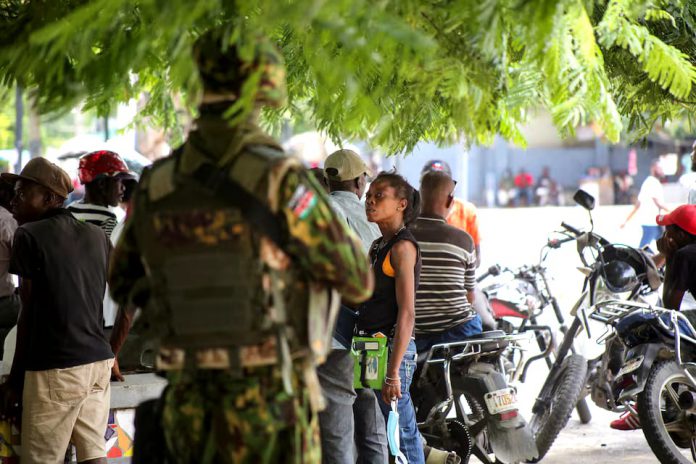Over 20 out of 400 Kenyan police officers deployed to Haiti on a U.N.-backed anti-gang force have submitted letters of resignation from the mission over the past two months due to lack of welfare issue.
The officers have received no response to their letters and continue to serve on the Multinational Security Support (MSS) mission, said the three officers, who requested anonymity because they were not allowed to speak to the media.
The MSS in Haiti, which is led by top Kenyan police officers, said in a statement sent after the publication of this article that it “categorically refutes” the assertions by Reuters that MSS officers were considering resigning over payment delays.
It said personnel “have received their salaries, including monthly allowances, and no MSS officer has tendered their resignation.”
Kenya’s national police spokesperson did not respond to calls and messages seeking comment about the resignation letters, pay delays and working conditions.
On Wednesday, national police chief Douglas Kanja addressed reports in Kenyan media of pay delays at a news conference, saying the officers had been paid “up to the end of October”.
The three officers disputed this, saying they were last paid in September.
Kenya has deployed about 400 officers since June to lead the MSS, which is meant to comprise around 2,500 personnel from about 10 countries, but the force has been hobbled by funding and staffing shortfalls.
Only a handful of officers from the other countries have arrived in Haiti, and a pledge in October by Kenyan President William Ruto to send another 600 officers the following month did not materialise.
The three officers told Reuters that colleagues began to submit letters of resignation in October after trying to resign verbally and being told to put their requests in writing.
Three officers submitted resignation letters in October and another 15 or so in November. Among them were at least five senior officers, including a unit commander, who was the first to submit a letter in October, they said.











